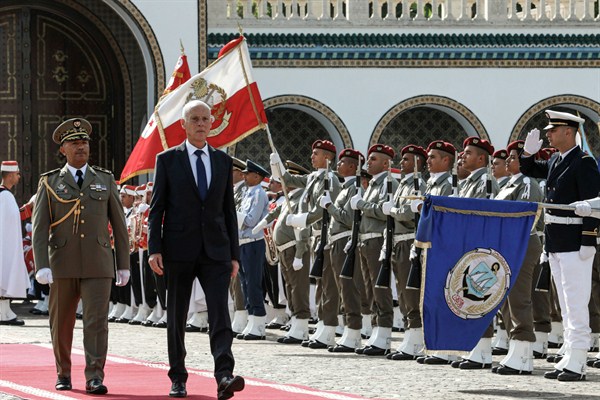A retired law professor with no prior experience in government won by a landslide in Tunisia’s presidential runoff in mid-October. Kais Saied’s victory, with more than 70 percent of the vote, was widely seen as a sign that the electorate is fed up with the country’s political establishment. In parliamentary elections held between the first and second round of the presidential race, no party won more than 19 percent of the vote. Ennahda, the moderate Islamist party, won a plurality of 52 seats but is likely to face difficulty assembling a coalition government in the 217-seat parliament.
In an email interview with WPR, Mohamed-Dhia Hammami, a Tunisian political analyst and researcher at Wesleyan University, explains how the recent elections have reshaped Tunisia’s political landscape, and what to expect from the new president and parliament.
World Politics Review: What accounts for Saied’s popularity, despite his lack of prior experience in government?

